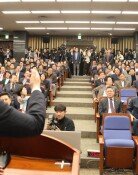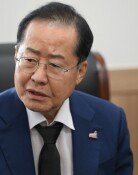Brooks talks about S. Korea’s populist presidential candidates
Brooks talks about S. Korea’s populist presidential candidates
Posted July. 31, 2021 07:46,
Updated July. 31, 2021 07:46

Former Commander of the R.O.K.-U.S. Combined Forces Command Vincent Brooks expressed concern that there are growing signs of anti-American sentiment across South Korea where the next presidential election is scheduled next March, highlighting that some candidates take advantage of populism to intensify anti-Americanism and anti-alliance politics. He opined that joint military drills between the two allies have been held back by South Korean political situations, putting emphasis on the significance of a stronger alliance between the two nations regardless of the forthcoming presidential election or pressure from China.
Mr. Brooks on Thursday (local time) contributed an editorial titled “A Grand Bargain with North Korea” to Foreign Affairs, a U.S. magazine specialized in international relations and foreign policy, in collaboration with South Korean Gen. Leem Ho-young, former Deputy Commander of the R.O.K.-U.S. Combined Forces Command. He wrote, “The allies must maintain a sense of continuity during and after the South Korean presidential elections.” “The main cause of the weakening alliance during the Trump-Moon era was the politicization of national defense to gratify populist nationalism.”
Gen. Brooks presented a critical analysis that South Korean political parties have already begun to vie against one another, leading to the rise of populist candidates who utilize anti-Americanism and anti-alliance politics. According to Gen. Brooks, politics of populist nationalism can deal a critical blow to the implementation of integrated air and missile defense systems, the modernization of common command and control systems, the acquisition of tactical nuclear weapons, etc. “Both U.S. and South Korean alliance leaders and military experts should work to find bipartisan support on crucial issues to preclude losing the valuable progress made so far during 2021,” he stressed.
As for North Korea policy, he argued that the normalization of relations with Pyongyang should start on top of a stronger basis of the R.O.K.-U.S. alliance, adding that U.S. financial support of infrastructure development in North Korea can reduce the regime’s dependence on China.
abro@donga.com · jarrett@donga.com
Headline News
- Internal rebellion investigation transferred to Public Prosecutor's Office
- Gov’t to approve Yongin Semiconductor National Industrial Complex
- US conservatives rally around Trump’s third term
- Lee Hyo-song named youngest Rookie of the Year in JLPGA history
- Controversy escalates over the appointment of Constitutional Court justices







